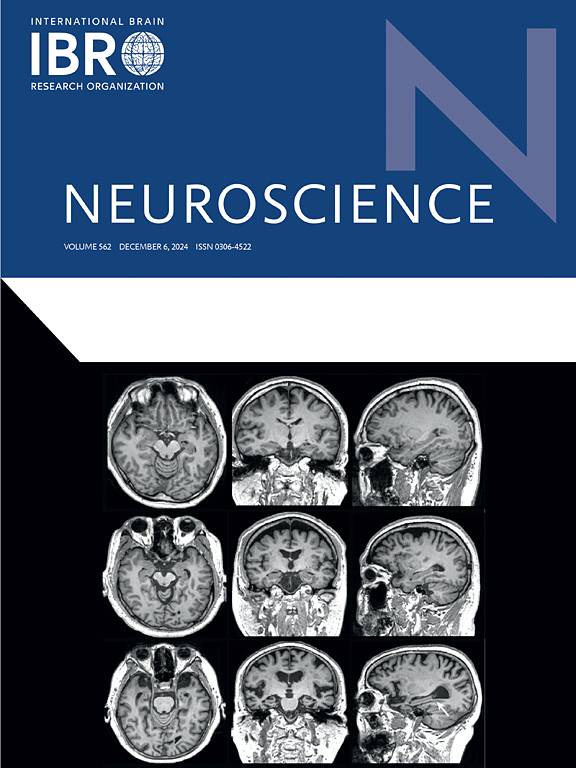马约兰茶对帕金森特发性疾病中氧化/抗氧化应激生物标志物的随机、安慰剂对照试验研究:突尼斯的一项随机对照试验研究
IF 2.8
3区 医学
Q2 NEUROSCIENCES
引用次数: 0
摘要
目的:本研究旨在探讨食用牛大叶茶(Omt)是否会影响特发性帕金森病(PD)志愿者的氧化应激生物标志物,从而潜在地缓解症状或减缓疾病进展。方法:随机、双盲、安慰剂对照试验(PACTR202205801626909),包括健康志愿者。参与者被随机分配接受Omt(实验组,n = 30)或安慰剂茶(对照组,n = 25),每天一次,连续30天。每个志愿者在两个时间点采集血样:研究前一天(第1天)和研究结束后一天(第31天)。分析氧化应激生物标志物,包括超氧化物歧化酶(SOD)、过氧化氢酶、尿酸和羰基化蛋白。结果:两组在人口学和临床特征方面具有可比性。在实验组中,第31天的测量结果显示,与第1天相比,SOD (19.28 U/mg)和过氧化氢酶(130.1 µmol/L)显著增加,而羰基化蛋白水平降低了0.18 nmol/mg蛋白。此外,在第31天,实验组SOD和过氧化氢酶水平显著高于对照组,羰基化蛋白水平显著低于对照组。SOD、过氧化氢酶和羰基化蛋白在时间(第1天vs第31天)和组(对照组vs实验组)之间观察到显著的相互作用效应。结论:大黄注射液可提高或调节PD患者的抗氧化状态,减轻氧化损伤。需要进一步的研究来探索其潜在的治疗益处。本文章由计算机程序翻译,如有差异,请以英文原文为准。
Effect of Origanum majorana tea on oxidative stress biomarkers in Parkinson’s disease: a randomized placebo-controlled pilot study
Objective
This study aimed to investigate whether the consumption of Origanum majorana tea (Omt) affects oxidative stress biomarkers, potentially alleviating symptoms or slowing disease progression in volunteers with idiopathic Parkinson’s disease (PD).
Methods
A randomized, double-blind, placebo-controlled trial (PACTR202205801626909) was conducted, including healthy volunteers. Participants were randomly assigned to receive either Omt (experimental group, n = 30) or a placebo tea (control group, n = 25) once daily for 30 consecutive days. Blood samples were collected from each volunteer at two time points: one day before the study (Day1) and one day after its conclusion (Day31). Oxidative stress biomarkers, including superoxide dismutase (SOD), catalase, uric acid, and carbonylated proteins, were analyzed.
Results
The two groups were comparable in terms of demographic and clinical characteristics. In the experimental group, Day31 measurements showed a significant increase in SOD (19.28 U/mg) and catalase (130.1 µmol/L) compared to Day1, while carbonylated protein levels decreased by 0.18 nmol/mg protein. Additionally, on Day31, the experimental group exhibited significantly higher SOD and catalase levels and lower carbonylated protein levels than the control group. Significant interaction effects between time (Day1 vs. Day31) and group (control vs. experimental) were observed for SOD, catalase, and carbonylated proteins.
Conclusion
Origanum majorana infusion may enhance or regulate antioxidant status and reduce oxidative damage in patients with PD. Further studies are warranted to explore its potential therapeutic benefits.
求助全文
通过发布文献求助,成功后即可免费获取论文全文。
去求助
来源期刊

Neuroscience
医学-神经科学
CiteScore
6.20
自引率
0.00%
发文量
394
审稿时长
52 days
期刊介绍:
Neuroscience publishes papers describing the results of original research on any aspect of the scientific study of the nervous system. Any paper, however short, will be considered for publication provided that it reports significant, new and carefully confirmed findings with full experimental details.
 求助内容:
求助内容: 应助结果提醒方式:
应助结果提醒方式:


